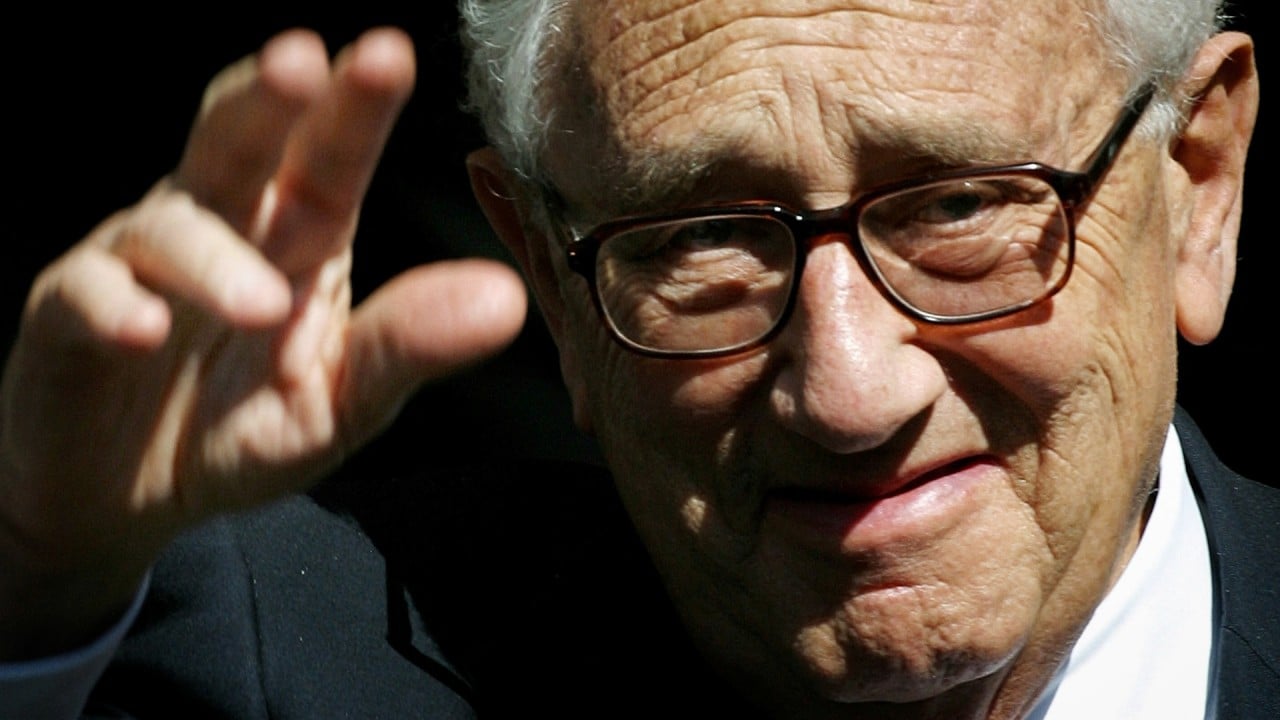
Can China emerge from Kissinger’s long shadow over foreign policy with the US?
- Kissinger was often the first port of call for Chinese envoys visiting the United States and his expertise was appreciated by generations of academics and diplomats
- But the unanticipated election of Donald Trump in 2016 suggested that China’s observers were out of touch
However, with bilateral ties trapped in their worst downward spiral since Kissinger’s secret 1971 trip to Beijing, China hawks, including many of his fellow Republicans, have argued that the opening to China under Richard Nixon was a mistake that did a disservice to America’s global interests.
Others, including some mainland-based analysts, are often sceptical of Beijing’s privileged treatment of Kissinger, his much-touted access to generations of Chinese and American leaders and his reportedly profitable consulting business.
Xie also praised Kissinger’s “co-evolution” paradigm for the two superpowers to coexist peacefully and his strong affinity for China, quoting the former secretary of state’s own words during his last public appearance in October. “I’ve spent literally half of my life working on US-China relations,” the veteran diplomat claimed at a National Committee on US-China Relations event in New York.
The fact that Kissinger and other Western theorists still have a dominant influence in China despite the country’s rapid global ascendancy is probably disheartening for many in Beijing, too. It is debatable whether a distinctively Chinese theory of international politics is needed but a lot of people share the frustration that Beijing often fails to get its preferred messages across in the narrative war with the West.
And while many Chinese officials and experts conveniently blame American hegemony, especially Western theory’s dominant influence on global politics, for the world’s problems, others have pointed to the flaws and inadequacies in China’s international studies.
Over the past decade, Wang Jisi, a prominent US expert at Peking University in Beijing, has repeatedly warned that American studies in China have been “too weak” compared to Chinese studies in the US.
In a speech three years ago, he said he was “ashamed” about the status of China’s American studies. “We Chinese always say our American studies are deeper and broader than China studies in the US – I think that’s inaccurate and incorrect,” Wang said.
The situation worsened after Donald Trump was elected US president in 2016. Most Chinese experts specialising in American politics failed to predict his victory and struggled for the next four years to make sense of the erratic leader and the phenomenon he created.
Several other leading experts, including Shi Yinhong of Beijing’s Renmin University, admitted that it was deeply embarrassing for China’s US watchers, many of whom had been trained in American universities but failed to comprehend what the rise of Trump meant for the US.
It was a heavy blow to their credibility especially when this age of accelerating decoupling between the two powers means expertise on US politics is needed more than ever. Their failure to make sense of the phenomenal changes in US politics was believed to be at least partly responsible for the chaos and steep decline in bilateral ties.
According to Wang, a lack of state funding, Beijing’s shift to studies in developing countries and the distraction of pressing international issues have all led to the decline in the number of researchers on the US.
He said in an interview published last year that Chinese academics needed to learn from their American counterparts, especially when it came to making friends and conducting long-term field research.
“The prerequisite for studying the US is to make friends with Americans, including those with similar interests and similar views, as well as those with cognitive differences,” Wang said.



